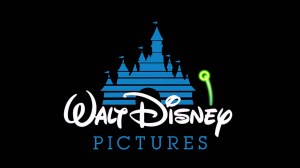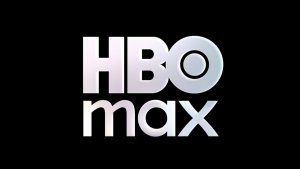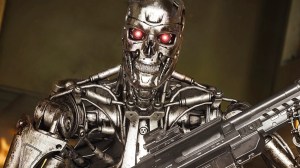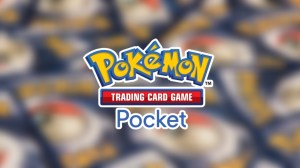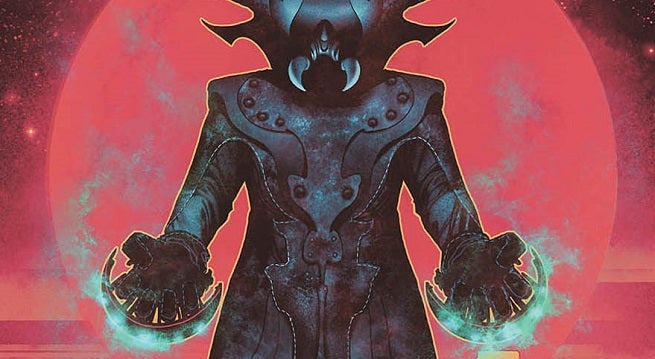
Videos by ComicBook.com
A send-up of Hollywood culture seen through the prism of a profoundly flawed and often unlikable protagonist, the book is yet another in a long line of projects that Morrison has infused with his own life experience. Most famously, Animal Man dealt with his own journey into animal rights and vegetarianism while King Mob of The Invisibles actually looked like Morrison and was his kind of fictional avatar.
So what about the cutting, bizarre, science fiction-and-brain-tumors-infused Annihilator could he relate to? Well, you’re in luck! Morrison joined us to talk about that issue and more.
You can read the first half of our two-part interview about Annihilator here.
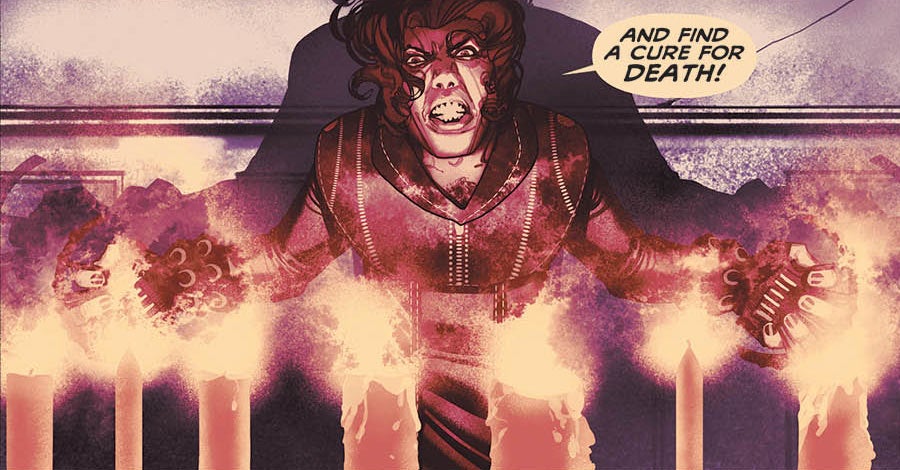
Yeah, absolutely. James Joyce said that aliens could reconstruct Dublin from Ulysses and I think that people could reconstruct the events of my life from reading the comics. It’s really obvious when my father died in All-Star Superman. It’s a little less obvious when my mother died last year but it’s in the work, particularly in Annihilator, trying to understand the void, the black hole, the space in all our lives as we’re all swirling toward the coffin.
I think there’s a lot of that there, where you can see me working stuff through. So yeah, I definitely think that’s the way it should be. I think a writer should be talking about your own lives. That’s why I love superhero stories: you can deal with it and think through it and find new ways to solve the narrative behind some of your life’s problems.
You’ve always had an interesting balance; you’re doing The Multiversity and Annihilator and this isn’t the first time —
No, you’re right. I’ve always done that: when I was doing Justice League, The Invisibles was happening and when I was doing X-Men, The Filth was happening so I always like having a creator-owned project that reflects the themes and the interests that I’m going through.
That’s like finding The Hobbit after you’ve read The Lord of the Rings! [Laughs] It’s never going to be as good.
Did the two play off each other in the way that Annihilator and The Multiversity do? I didn’t remember that.
But they actually really did. Justice League had the Worlogog and the Map of Space and that was like the silver blobs in The Invisibles so they really did reflect one another quite strongly.
So what is the long-term plan for Annihilator? Is this a series where you’re going to have this one story and it’s done, or is it something that, as you’re developing it, you’re saying: “Oh, there’s more to be done here?”
No, it’s a complete story, but at the same time I think we’ve got this character of Max Lomax has ended up being very powerful. Then when the comic ends, we’ve kind of put him in a place so we could use this archetype again and again.
I think it’s interesting because you say “archetype” and that’s something that I feel is being explored more and more now that superheroes are now The Thing in Hollywood.
Yeah
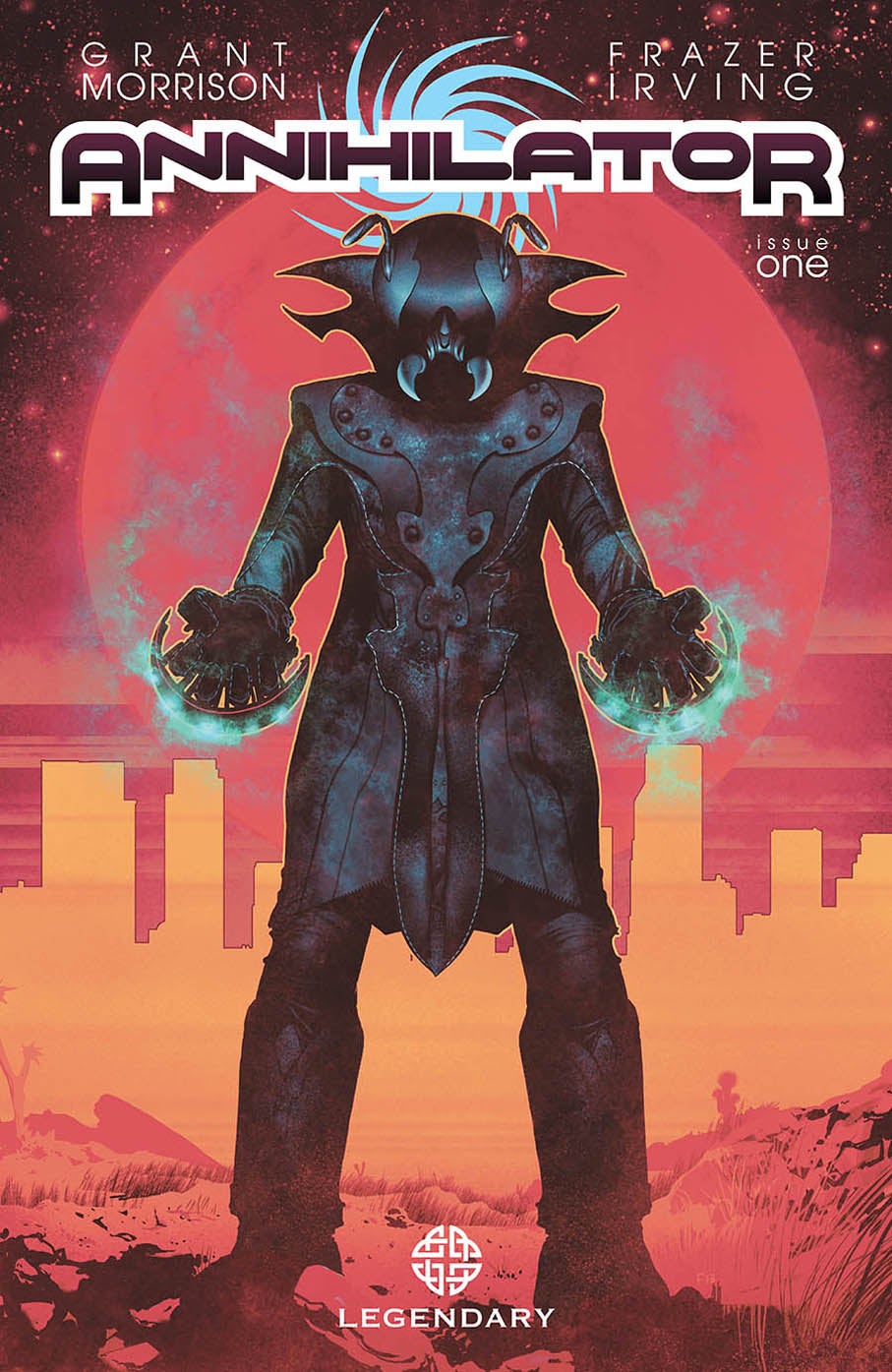
For me what you’ve got right now is, since the Internet has become so important, everyone’s a superhero. Everyone’s got a Facebook or a Twitter and they all post selfies and it’s all about, “How do you look?” Or how are you dressed? And your lifestyle is more important than everyone’s. And it’s kind of we’re all superheroes now. I think that’s why superheroes have become so popular — that idea of, in real life we’re all just sitting around, using the toilet and going to our dinner. But in the online world, we’re all rock stars. So I think that’s a lot of what’s driving the interest in superheroes: the notion that we all have these alternate personalities where we’re kings and queens of the world.
You know, it’s interesting because as you were saying this, I have now on my desk I have a Panasonic-licensed comic that Ron Marz did. It’s a bunch of superheroes and a gentleman in the front in a shirt and tie who’s taking a Selfie with the superheroes in the background.
And that’s it, because we’re all heroes now. It’s kind of beautiful – it’s very egalitarian, you know. Everyone now is special and it’s getting rid of the notion of the genius, of the special person that we’ve been living with for the last three hundred years.


